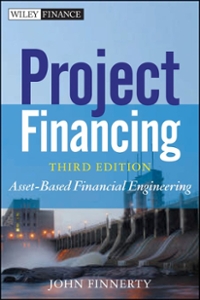Question
Harsh Lee is a hedge fund manager for last 20 years. He has a history of outstanding performance. For the last 20 years, Harshs fund
Harsh Lee is a hedge fund manager for last 20 years. He has a history of outstanding performance. For the last 20 years, Harshs fund has used an equity market neutral strategy, which has proved to be effective as a result of Harshs hard work. An equity market neutral strategy normally generates large daily trading volume and shifts in individual security positions. Harshs fund has consistently performed better than the index and because of this his reputation has grown over time. Employee turnover on Harshs team has been high; he has the tendency to be quick to blame, and rarely gives credit to team members for success. During the past 10 months, his fund has been significantly under-performing compared to the benchmark. One of Harshs junior analysts, Woogly chan, is concerned about the under-performance and notes the following:
Observation 1: Certain positions are making losses, have much higher risk profiles, and have been held for much longer than normal.
Observation 2: The trading volume of the fund has decreased by more than 40 percent during the past year.
Observation 3: The portfolio is more concentrated in a few sectors than in the past.
Woogly is worried that the portfolio may be in violation of the funds investment policy statement (IPS). Woogly brings this to Harshs attention during a regular weekly team meeting. Harsh dismisses Wooglys analysis and tells the team not to worry because he knows what he is doing.Harsh indicates that since he believes the pricing misalignment will correct itself, the portfolio will not be able to take advantage of the reversion to the mean if he sells certain losing positions. He reassures the team that this strategy has performed well in the past and that the markets will revert and the funds returns will return to normal levels.Woogly tactfully suggests that the team review the funds IPS together, and Harsh interrupts him and reminds the team that he has memorized the IPS by heart. Woogly contemplates his next step. He is concerned that Harsh is displaying behavioral biases which are affecting the funds performance.
A) By taking credit for success but assigning blame for failures, Harsh is most likely demonstrating
a. loss-aversion bias
b. illusion of control bias
c. self-attribution bias
B) Which of Woogly's observations is least likely to be the consequence of Harsh demonstrating loss-aversion bias?
a. Observation 2
b. Observation 3
c. Observation 1
Step by Step Solution
There are 3 Steps involved in it
Step: 1

Get Instant Access to Expert-Tailored Solutions
See step-by-step solutions with expert insights and AI powered tools for academic success
Step: 2

Step: 3

Ace Your Homework with AI
Get the answers you need in no time with our AI-driven, step-by-step assistance
Get Started


